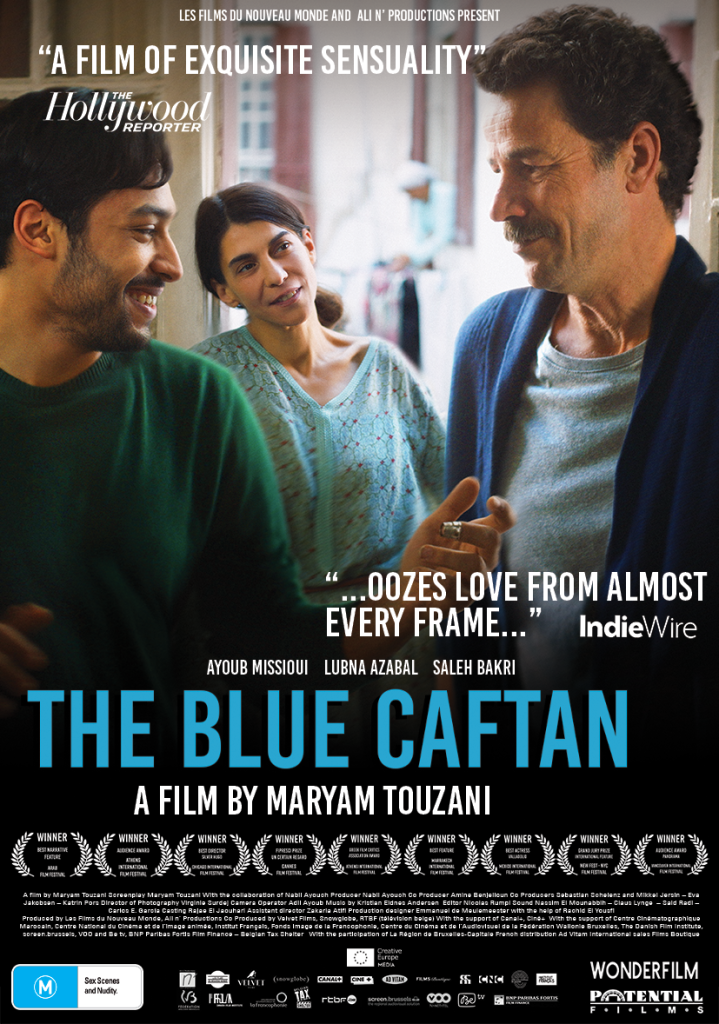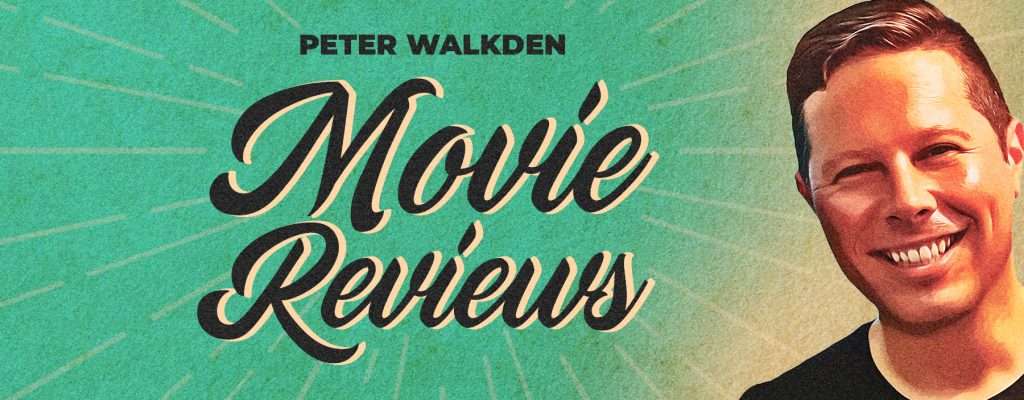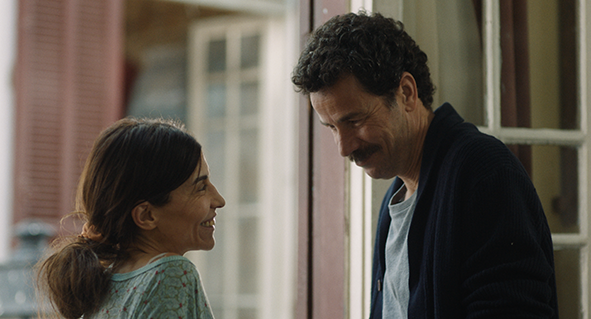Halim (Saleh Bakri) and Mina (Lubna Azabal) are a married couple living in Salé, Morocco. They run a local caftan store together, making and selling beautiful handmade garments. Despite being known for their outstanding skills and providing fantastic hand-crafted work, Halim and Mina have recently started to fall behind in completing various orders, and customers are soon raising complaints and concerns. With no other choice, Halim and Mina decide to take on a new staff member, a man named Youssef (Ayoub Missioui). With Youssef’s assistance, they hope the workload and backlog of orders will be fulfilled.
However, the truth about the couple’s struggling caftan business relates more to Mina’s illness, which is worsening. While married life for the two has always been a blessing, Halim is also hiding a secret- he’s a homosexual. Halim has kept his inner thoughts and desires secret during his entire married life, and Mina herself has never caught on. But now, with Youssef working alongside Halim, a new bond is developed. Halim is now in a world filled with conflicts and drama as Mina’s illness worsens, and he wrestles with his feelings for the new hard-working apprentice, Youssef.
The Blue Caftan is best described as a drama film, and to my surprise, the film is carried by a small cast. Moving slowly, plot details are revealed in a slow burn. Once we understand the several challenges with Halim at the centre, I couldn’t help but feel invested and curious to see what path our characters would take, particularly Halim. Will he continue to support his wife and live a life of secrets? Will he give everything up in frustration or perhaps due to the exhaustion of caring for his wife and trying to maintain his work as a tailor? Or will Halim pursue and accept these feelings found deep within his heart?
The characters are engaging and likeable, carrying this film wonderfully and dramatically. While it is slower than I prefer, I can’t deny that plenty of moments here are dramatic, heartfelt, and touching. I admired the performance of actor Saleh Bakri, who is highly convincing as a qualified dressmaker. Hearing his heart speak about some of the finer details surrounding fabrics is one example of the finesse the actor shows throughout. Ayoub Missioui, as Youssef, is generally shy and has a humble and respectful attitude toward others. Lubna Azabal, as Mina, becomes increasingly more tired and frustrated with the business and her change in health, pushing her attitude at various times. The filming style is also great, especially the use of close-ups to show facial expressions, even during moments where no dialogue is spoken.
Overall, I was invested in this solid, slow-burning drama filled with touching and heartfelt emotions. I wanted to see the outcomes for the various characters in The Blue Caftan. Performances here are excellent, compelling, and convincing, and the same can be said about the filming style throughout, which captured the drama and emotion perfectly. Each character in this small cast brings the story to life with personal qualities and drama. If you’re seeking a slow-paced drama with heart, The Blue Caftan will leave you with a heavy, yet content heart.
7.5/10
13th May 2023
Written by Peter Walkden



WALKDEN ENTERTAINMENT
PODCASTS ARE AVAILABLE!



0 Comments